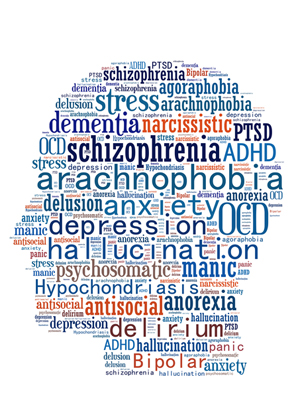The word “mindfulness” is defined as “a quality or state of being conscious or aware of something.” While this idea has Buddhist origins, the direction of one’s awareness is what can make this practice different between Christians and Buddhists. That being said, there are many aspects of mindfulness that would be the same regardless of religious belief. For example, relaxing your body and paying attention to your own thoughts as they come in to your mind is neither Christian nor Buddhist.
So why should Christians practice mindfulness and how is it best done from a Christian worldview?
Mindfulness Brings Awareness of God’s Presence
God is always with us, as he said he will never leave us or forsake us. Yet as Christians we are only partially aware of God’s continual presence. Mindfulness can help bring back a more full awareness of God’s presence as we connect to him in intentional and mindful prayer.
You can practice this by finding a quiet place with no distractions. Close your eyes and focus your thoughts on God. You can have 2-3 Bible verses memorized or on index cards that you reflect on. If your thoughts wander, simply bring them back gently to the verses you have selected. (Colossians 3:15 is a great example). After you have meditated on these verses, bring your awareness onto the presence of God. You can imagine sitting at his feet or you can picture him hugging you. You can also picture him dwelling in you. As you do this, you can relax your body and breathe more slowly, just resting in his awesome presence. When we are actively aware of God, we connect with the Kingdom of Heaven and we can experience greater levels of peace.
Mindfulness Helps Us Renew Our Minds
Romans 12:2 tells us that as a Christian you should “be transformed by the renewing of your mind.” Mindfulness is a skill that takes practice, as we mentally train ourselves to focus on God and his word. Our brains are constantly adapting to new experiences and changing through learning. Relaxation and mindfulness creates actual changes in the brain (a concept known as neuroplasticity). Focusing our attention on God through mindfulness helps renew our minds as we reduce stress in our bodies and bring healing to our brains.
Increased awareness of the presence of God, of our own bodies and of the thoughts in our minds helps us to be intentional. A lack of awareness brings more chaos as we fall into a trap of rushing through our day with little awareness of God or our own needs. Mindfulness, whether practiced alone in a quiet place or simply as a momentary check-in in the midst of a crowd, helps us intentionally refocus on God and his Kingdom. Mindfulness can also help slow our bodies down, which is quite counter-cultural for us Americans. Jesus was never in a hurry, and he was continually mindful of his Father and his mission.
Mindfulness Gives Us Grace For Ourselves and Others
A common struggle people have when beginning to practice mindfulness is that of cluttered or racing thoughts. The moment you close your eyes, your mind can be flooded with all the worries and stress of your day. Too often our reaction is to push those things away or become frustrated that they are in the way of focusing on God. In this process we can actually grow in the area of giving ourselves and others grace. We can pay attention to these thoughts without judgment as we observe the areas in which we need the most help from God. We can then invite him into those worries and cluttered thoughts and allow him to align our thoughts to his.
One important aspect of mindfulness is acceptance of yourself in a non-judgmental way. Christians can sometimes get nervous with this language because they fear that in reducing judgment on themselves they will give into their sinfulness or stop growing in Christ. “I’m okay, you’re okay” feels like lying to ourselves and simply covering over sin. But at the heart of the Gospel is the idea that we are loved and accepted as we are. If we are in Christ, then he alone is our judge and he chooses to love us. We can align our perspectives with his in this way, and while practicing mindfulness become more aware of God’s unconditional love and acceptance for us. Allow his love for your to bring peace and healing into your mind and soul today.










